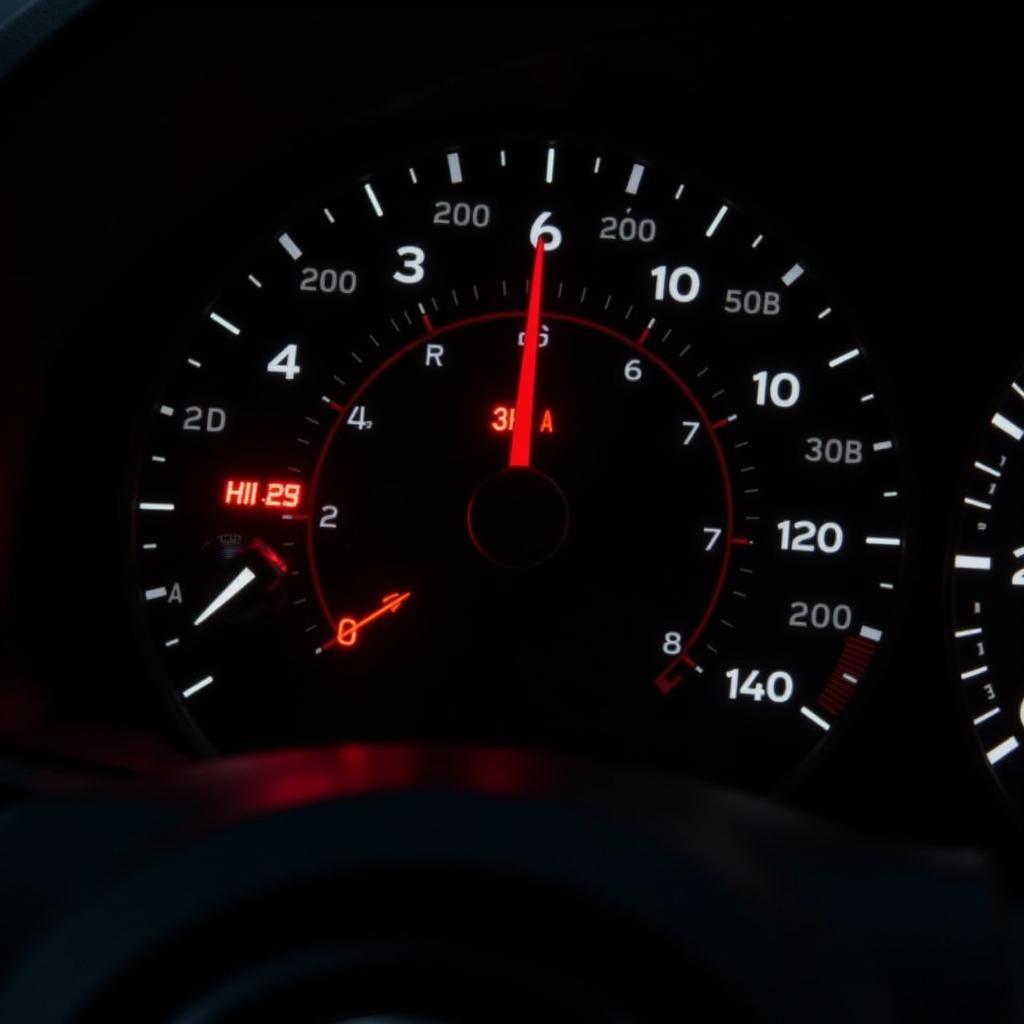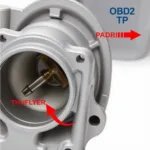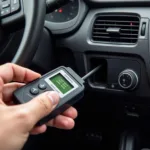A “no power” issue in your VW GTI can be incredibly frustrating. You turn the key, expecting the satisfying purr of the engine, but instead, you’re met with silence. While a dead battery is a common culprit, the issue could stem from various problems within the complex world of your car’s electrical and fuel systems. This article will explore the common causes behind an OBD2 code indicating “no power” in a VW GTI, guide you through possible solutions, and offer valuable insights to help you get your car back on the road.
Understanding “No Power” in Your VW GTI
When we say “no power,” we’re not just talking about a car that won’t start. It can also manifest as a significant loss of engine power, sluggish acceleration, or even stalling. These symptoms could point to several issues, from a faulty fuel pump to a failing sensor.
Common Causes of “No Power” in a VW GTI
Pinpointing the exact cause of a “no power” issue often requires an OBD2 scanner, a valuable tool that reads your car’s diagnostic trouble codes (DTCs). Here are some common culprits behind this frustrating problem:
1. Faulty Fuel Pump
The fuel pump plays a crucial role in delivering fuel from the tank to the engine. If it fails, your engine won’t get the fuel it needs to start or run properly.
2. Clogged Fuel Filter
A clogged fuel filter restricts fuel flow to the engine, leading to symptoms similar to a faulty fuel pump.
3. Faulty Crankshaft Position Sensor
This sensor monitors the crankshaft’s position and speed, sending crucial information to the engine control unit (ECU) to manage fuel injection and ignition timing. A failing sensor can disrupt these processes, resulting in a no-start or loss of power.
4. Faulty Camshaft Position Sensor
Similar to the crankshaft position sensor, the camshaft position sensor relays information about the camshaft’s position to the ECU. A faulty sensor can disrupt ignition timing and fuel delivery, leading to performance issues.
5. Vacuum Leaks
Vacuum leaks can disrupt the air-fuel mixture, causing a range of engine performance problems, including a “no power” condition.
Troubleshooting “No Power” in Your VW GTI
While an OBD2 scanner can pinpoint the problem, some basic troubleshooting steps can help you narrow down the possibilities:
- Check the Battery: A dead or dying battery is often the culprit behind a car that won’t start.
- Inspect the Fuel System: Check for loose connections, damaged fuel lines, or a clogged fuel filter.
- Examine the Air Intake System: Look for any disconnected or damaged hoses that could cause vacuum leaks.
- Scan for Trouble Codes: If the problem persists, use an OBD2 scanner to retrieve diagnostic trouble codes, which can provide more specific clues about the underlying issue.
OBD2 Scanners: Your Best Friend in Diagnosing “No Power”
An OBD2 scanner is an invaluable tool for anyone experiencing a “no power” issue with their VW GTI. It acts as a direct line of communication with your car’s computer, translating those cryptic trouble codes into understandable language. By providing specific information about the problem, an OBD2 scanner empowers you to make informed decisions about repairs, saving you time and potentially costly misdiagnoses.
Choosing the Right OBD2 Scanner
With numerous OBD2 scanners available, selecting the right one for your needs is crucial. Here are some factors to consider:
- Compatibility: Ensure the scanner is compatible with your VW GTI’s make, model, and year.
- Features: Basic scanners read and clear codes, while advanced models offer live data streaming, graphing capabilities, and even specific manufacturer code definitions.
- Ease of Use: Look for scanners with an intuitive interface, clear displays, and easy-to-understand instructions.
Conclusion
A “no power” issue in your VW GTI can be a daunting experience, but understanding the potential causes and utilizing an 2008 vw gti obd2 scanner can make the diagnostic process significantly easier. By taking a systematic approach to troubleshooting, you can get to the root of the problem and get your GTI back on the road.
Remember, safety should always be your priority. If you’re uncomfortable performing any of these diagnostic steps or suspect a serious issue, it’s always best to consult a qualified mechanic.
FAQs
Q1: Can a bad alternator cause a “no power” issue in my VW GTI?
A: Yes, a failing alternator can prevent the battery from receiving a proper charge, eventually leading to a “no power” situation.
Q2: My VW GTI cranks but won’t start. Could this be related to a “no power” issue?
A: Yes, a cranking engine that doesn’t start can indicate a “no power” problem related to fuel delivery or ignition.
Q3: How often should I check my fuel filter?
A: Consult your VW GTI’s owner’s manual for specific recommendations, but a general rule of thumb is to replace it every 30,000 miles.
Q4: Can I drive my VW GTI with a “no power” issue?
A: It’s not advisable to drive with a “no power” issue, as it can be unsafe and potentially cause further damage.
Q5: How much does it cost to diagnose a “no power” issue with an OBD2 scanner?
A: Basic OBD2 scanners can be purchased for under $50, while more advanced models can range from $100 to several hundred dollars.
Need More Help?
For further assistance with your VW GTI’s “no power” issue or to explore ECU tuning options for your VW, please reach out to our team via WhatsApp: +1(641)206-8880, or Email: [email protected]. We offer 24/7 customer support to help you get back on the road.


